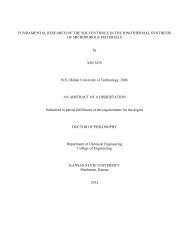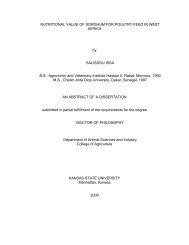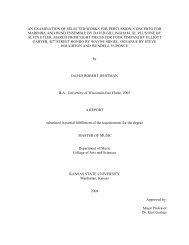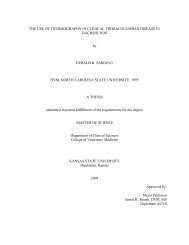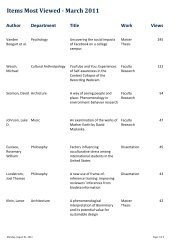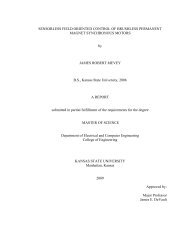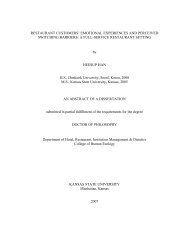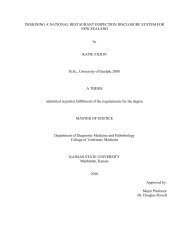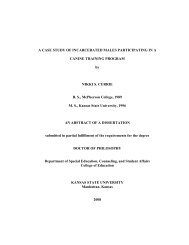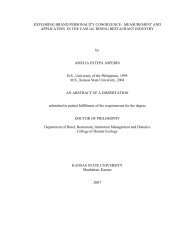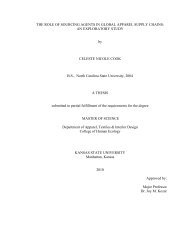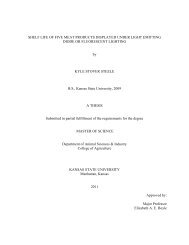SELFISH INTENTIONS - K-REx - Kansas State University
SELFISH INTENTIONS - K-REx - Kansas State University
SELFISH INTENTIONS - K-REx - Kansas State University
You also want an ePaper? Increase the reach of your titles
YUMPU automatically turns print PDFs into web optimized ePapers that Google loves.
Breeze dated July 18, 1899, Thompson offered a notably conservative view of divorce that rested<br />
almost entirely upon a defense of the marital union and its social value. Like many other leaders<br />
during the nineteenth century, Thompson believed the state of the nation’s civilization and<br />
happiness depended upon the family; therefore, the state had a deeply vested interest in the<br />
stability and preservation of families. He elaborated, “I think it would aid very much in<br />
maintaining this institution if it was generally understood that the law requires the marriage<br />
contract, with few exceptions to continue indissoluble during the joint lives of the parties to<br />
it.” 117 In an effort to preserve the family, Judge Thompson believed that only one ground,<br />
adultery, was an acceptable reason for a divorce. He also deplored the spectrum of grounds for<br />
divorce in various states: “From that limited range to the unbounded discretion allowed the court<br />
by the statutes of Washington, each state, with one or two exceptions has provided more or less<br />
avenues of escape from the matrimonial condition, and in this line the legislature of <strong>Kansas</strong>,<br />
judging by comparison, has been very liberal.” 118 At the time of this letter, the state of <strong>Kansas</strong><br />
enumerated ten grounds for divorce, and Thompson believed that the only way that divorce rates<br />
would decrease was to change <strong>Kansas</strong> statutes so that it was more difficult to “secure a judgment<br />
setting aside the marriage contract.” 119<br />
All of these justices were troubled by the state of <strong>Kansas</strong> divorce though their reasoning<br />
varied. Some believed that divorce should be limited to cases of adultery only. Others believed<br />
divorce should only be allowed in cases of abuse, adultery, or abandonment. Still others asserted<br />
divorce law should be broad to allow people who want to get divorced for pretty much whatever<br />
reason to get divorced so long as someone in the court room spoke on behalf of the union. All of<br />
117 Ibid.<br />
118 Ibid.<br />
119 Ibid.<br />
49



